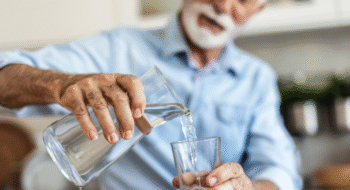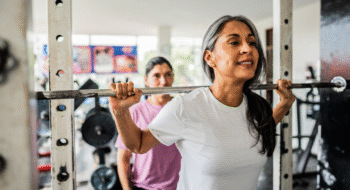Across the region, families are preparing their homes to host Thanksgiving dinner with friends and loved ones. For most, the day is filled with full bellies and grateful hearts. But for some, it ends with an unexpected trip to the emergency department.
Every year, tens of thousands of Americans visit a hospital emergency department on Thanksgiving, one of the most injury-prone holidays of the year, according to the US Consumer Products Safety Commission. At Tidelands Health, experienced emergency care teams are ready to treat a variety of injuries and conditions.
“We plan for Thanksgiving like any other day and prepare for everything and anything to come in,” says Wendi Kobylarz, emergency department director at Tidelands Health.
Before dinner
Last year on Thanksgiving, severe cuts were the most common injuries treated in the emergency departments at Tidelands Georgetown Memorial Hospital and Tidelands Waccamaw Community Hospital in Murrells Inlet.
If you’re carving the turkey or prepping vegetables, keep these safety tips in mind:
- Never cut toward yourself. Position your free hand on the opposite side of the carving direction. Never place your hand under the blade to catch slices.
- Keep knife handles and cutting surfaces dry to prevent slips. Good lighting is also essential.
- Use sharp knives. A sharp blade requires less force and is less likely to slip. Dull knives still cut and often cause injuries.
When to seek medical help
Go to the emergency department if you’ve cut yourself and:
- Bleeding doesn’t stop after 15 minutes of continuous pressure.
- You’re unsure of your tetanus immunization status, or it’s been more than 10 years since your last DTaP, Tdap or Td vaccine.
- You can’t thoroughly clean the wound with mild soap and plenty of clean water.
Sprains and strains from playing sports with family members are also common injuries around the holidays.
To make sure those kinds of injuries aren’t the reason you miss dinner, Kobylarz says people should be careful not to overextend themselves and know their limits.
Making dinner
Deep-frying a turkey has become a popular Thanksgiving tradition, but it’s also one of the most dangerous cooking methods if precautions aren’t taken.
According to the National Fire Protection Association, Thanksgiving is the leading day for U.S. home cooking fires, with more than three times the average number of incidents, many caused by turkey fryers.
To reduce risk:
- Set your fryer on a flat surface at least 10 feet from your home.
- Keep children and pets away, and never leave the fryer unattended.
- Follow the manufacturer’s instructions carefully.
- Wear protective gear such as goggles and fireproof gloves.
- Ensure the turkey is fully thawed and patted dry to prevent oil overflow.
“If you do receive a burn, rinse the area with cool water and gently wrap it with a clean bandage or gauze,” Kobylarz says. “Seek medical attention if the burn shows signs of infection, pain worsens or the blister is larger than two inches.”
After dinner
Kobylarz says after dinner is typically the busiest time in the emergency department on Thanksgiving as people seek help due to an overindulgence in alcohol and food, which can cause abdominal pain, chest pain and other symptoms.
“Be conscious of the amount of food you eat and beverages you drink,” Kobylarz says. “If you are on sodium or fluid restrictions, stick with them.”
If you have any concerns about chest pain or other health conditions that may arise during the holiday, don’t wait to seek care, she says. Never overlook warning signs.




